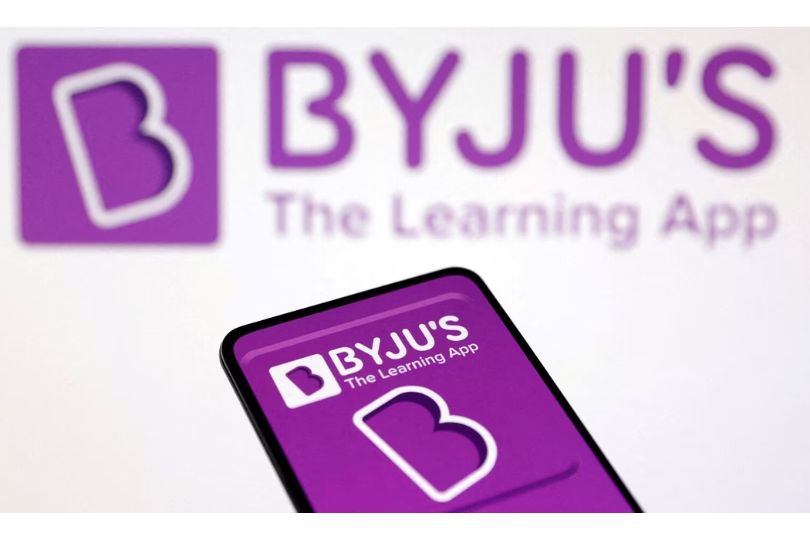A New Book, Charting the Rise and Fall of Byju's, Explores India's Educational Ecosystem
Explore India's education system with 'The Learning Trap' by Pradip Saha, delving into Byju's rise and fall, exposing challenges in the edtech landscape.on Jan 19, 2024

Pradip Saha's recent book, 'The Learning Trap - How Byju's Took Indian Edtech for a Ride,' is a unique investigative look into India's education system.
Serious and extensive media investigations into the education industry are unfortunately rare, resulting in significant costs for hundreds of millions of middle-class parents and children. Indeed, much media appears to rely on enormous, full-page adverts of various types supplied by universities, educational technologies, and tuition centres. There is obviously little desire to bite the hand that feeds. In light of this, Pradip K Saha's book The Learning Trap - How Byju's Took Indian Edtech for a Ride (Juggernaut, 2023) is encouraging.
Saha follows the ascent of a charismatic teacher to the point that he (and his family, who held major positions in the company) were plainly out of their element, particularly in financial problems. By the end, it appears that there is widespread denial and deceit, as well as financial anguish for so many families and young men and women. These families' cynicism about educational technology is unlikely to change.
Saha tells numerous heartbreaking instances about how low-income families (including auto rickshaw drivers) were exploited; some were denied refunds, and a lack of understanding of online subscriptions caused many families to lose money and wind up in debt traps.
Similarly, what makes Saha's book most relevant is that it addresses the greater educational setting of India. As written, most media rarely investigates education. This is consistent with the greater adoring business media coverage of India's economic strength. Misconceptions about education are far more serious than dishonest behaviours in, say, a food delivery app. The idea that an education software can do so much - perhaps improve your life - is uncontested in our unwavering faith in technology.
When the media does cover education, it is primarily to lament the fact that Indian colleges are rarely ranked among the best in the world. There is thus a striking contradiction: on the one hand, some may bemoan this, but on the other, it is simply assumed, as Saha says, that the IIT-JEE, NEET, or UPSC dream is natural for India.
One of the primary reasons why Indian colleges, even the most praised, perform poorly in rankings is that the admissions procedure is geared to exclude. Entrance tests are choke points; their design is crucial.
A genuinely good institution would have a broad-based admissions procedure that considers a student's full potential, which is why top international colleges demand on multiple dimensions. Not just test scores, but also personal essays, detailed CVs of accomplishments and specific projects, interviews, etc. Indian institutions are rarely ready to spend resources on hiring qualified admission teams; it is simply viewed as an extravagance by both commercial and public sector universities. Most public colleges would rather preserve money, whereas most private universities would prefer to spend more money on direct marketing. The exam preparation industry flourishes at this choke point.
There is little faith in institutions, particularly the top ones, therefore it is easier for everyone to simply look at a number in a single exam - so-called "merit". This severely broken ecology is where apps like Byjus (and many more) flourish. Indeed, there is no discussion about how to strengthen the weakened school system so that these technologies/centers can, at best, play a supporting role in making learning more engaging and deeper. Rather, the educational system, particularly its evaluation sub-system, is not held accountable at all, and the boards only relentlessly homogenise their assessments.
As Saha points out, companies like Byju's first attempted to make learning more engaging through animations and visualisations, and it is easy to imagine that Raveendran was once a true teacher expressing his enthusiasm. The problem remains that if everything is centred around a few exam scores, there is little learning - among other things, learning cannot occur in this high-anxiety environment.
The system is geared towards the test-giving authority being able to plausibly claim that it is not biassed - thus many of the elements of these tests have nothing to do with learning (or creativity), but entirely to do with irrelevant skills such as being able to solve a problem with tricks that increase speed.
Edtechs thrive on these workarounds, at the expense of deeper learning. The elimination of this learning at such a young age will make it difficult for these pupils to think creatively in the future. Is it any surprise that this pool of students, and the professors that must accommodate them, can no longer hope to perform genuine Nobel Prize-winning work and must travel elsewhere if they have such a desire. This is a significant part of the reason why no Indian colleges are at the top of the rankings; college years are spent simply cleaning up the learning loss caused by the admissions procedure.
Even more critical than rankings is the realisation that all of our doctors, engineers, and civil workers pass through such a flawed system.
One is grateful to Saha for these rare book-length investigations of the educational ecology and its sometimes odd manifestations; many more such extended, critical explorations are needed. Far more laudatory works have since emerged, such as Nistha Tripathi's Unstartup, which, although offering helpful information, primarily reproduces the self-image of the creators and those with a direct financial stake in these technologies. However, all of these works remind us that there are no easy lessons, and that all stakeholders - kids, parents, technologies, and institutions - must all be thoughtfully invested in the task of rethinking education and career.



.jpg)






.jpg)

.jpg)
.jpg)
.jpg)
.jpg)
.jpg)
.jpg)










Sorry! No comment found for this post.